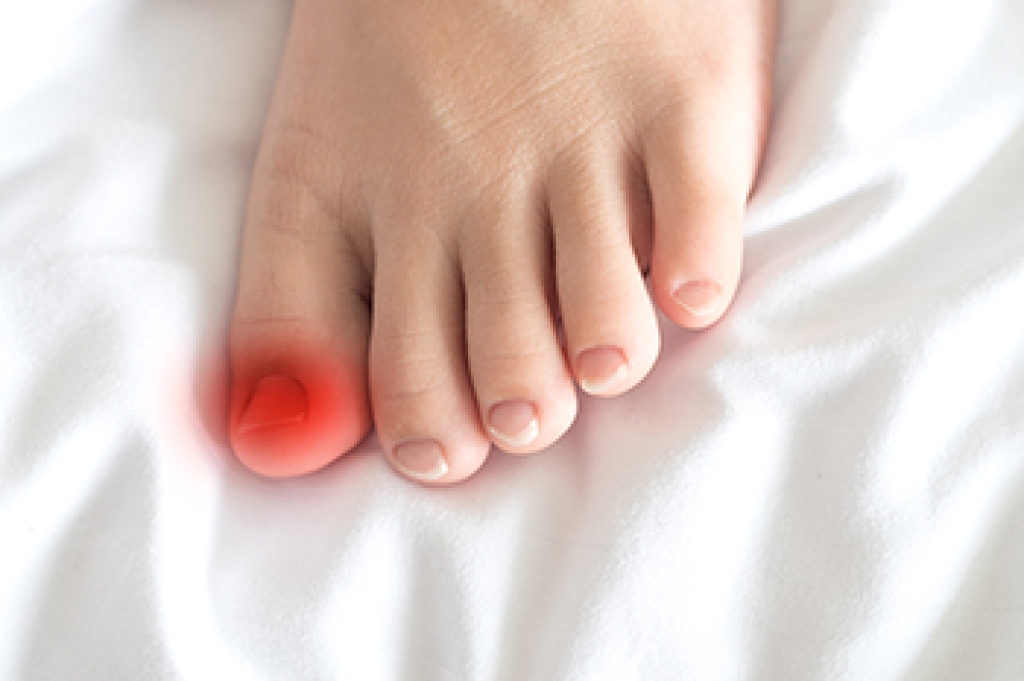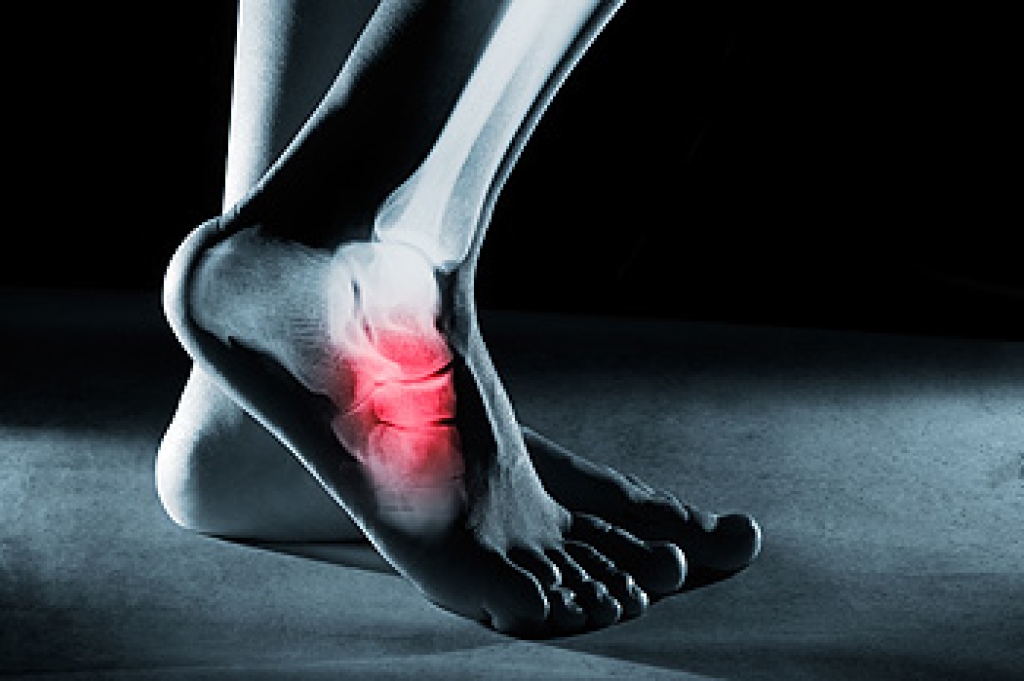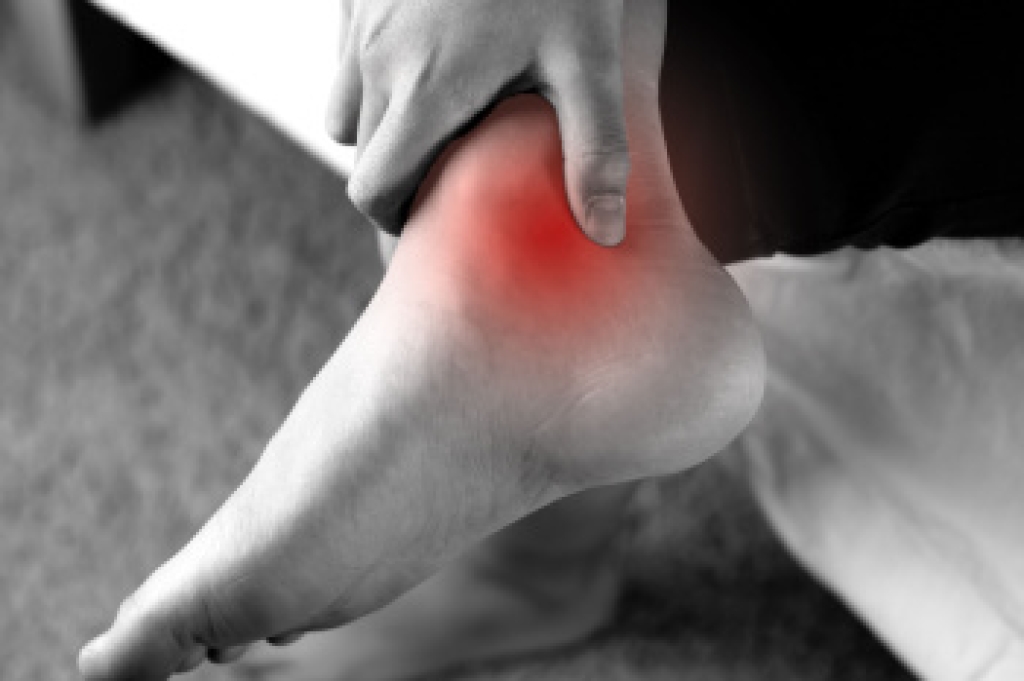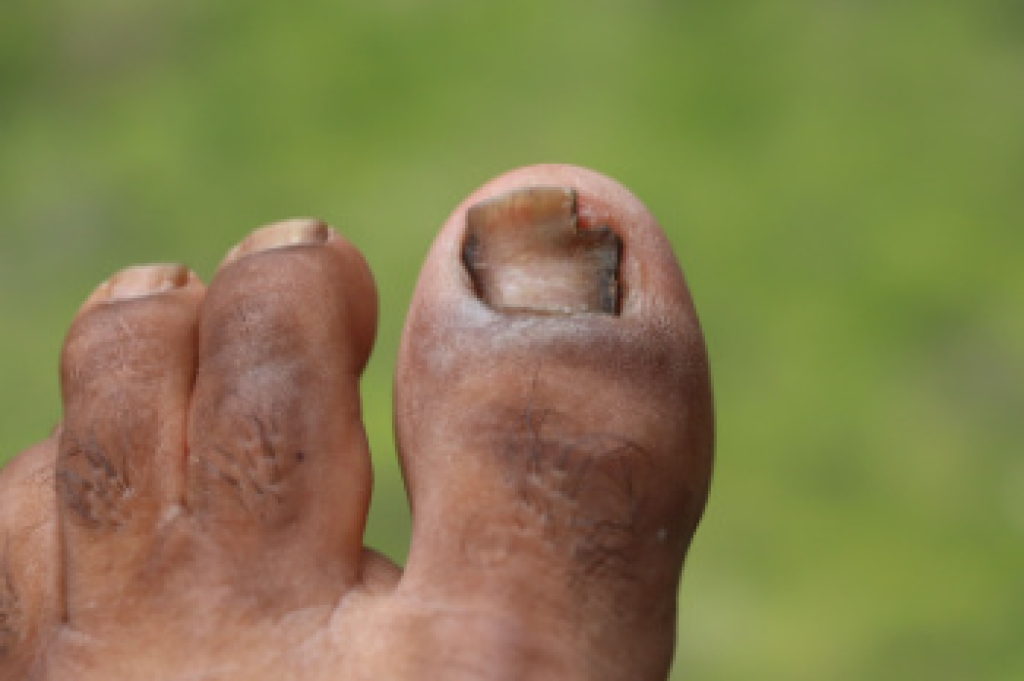
Ingrown toenails occur when the edge of a nail grows into the surrounding skin instead of over it, most commonly affecting the big toe. The toe may look red, swollen, or shiny, and in more advanced cases there may be drainage, infection, or excess skin along the nail border. It often feels tender at first, then progresses to sharp pain, throbbing, warmth, and discomfort when walking or wearing shoes. Causes include improper nail trimming, tight or narrow footwear, toe injuries, and genetic factors. A podiatrist can help from the start by diagnosing the condition and determining whether infection or other complications are present. Initial treatment may include relieving pressure, reducing inflammation, and proper nail care. If necessary, care can then move to in-office procedures to remove the ingrown portion of the nail, along with education to prevent recurrence. Prompt care helps restore comfort and foot health. If you have a painful ingrown toenail, it is suggested that you make an appointment with a podiatrist.
Ingrown toenails may initially present themselves as a minor discomfort, but they may progress into an infection in the skin without proper treatment. For more information about ingrown toenails, contact Kellvan Cheng, DPM of Elite Foot & Ankle. Our doctor can provide the care you need to keep you pain-free and on your feet.
Ingrown Toenails
Ingrown toenails are caused when the corner or side of a toenail grows into the soft flesh surrounding it. They often result in redness, swelling, pain, and in some cases, infection. This condition typically affects the big toe and may recur if it is not treated properly.
Causes
- Improper toenail trimming
- Genetics
- Improper shoe fitting
- Injury from pedicures or nail picking
- Abnormal gait
- Poor hygiene
You are more likely to develop an ingrown toenail if you are obese, have diabetes, arthritis, or have any fungal infection in your nails. Additionally, people who have foot or toe deformities are at a higher risk of developing an ingrown toenail.
Symptoms
Some symptoms of ingrown toenails are redness, swelling, and pain. In rare cases, there may be a yellowish drainage coming from the nail.
Treatment
Ignoring an ingrown toenail can have serious complications. Infections of the nail border can progress to a deeper soft-tissue infection, which can then turn into a bone infection. You should always speak with your podiatrist if you suspect you have an ingrown toenail, especially if you have diabetes or poor circulation.
If you have any questions, please feel free to contact our office located in Carrollton, TX . We offer the newest diagnostic and treatment technologies for all your foot care needs.








